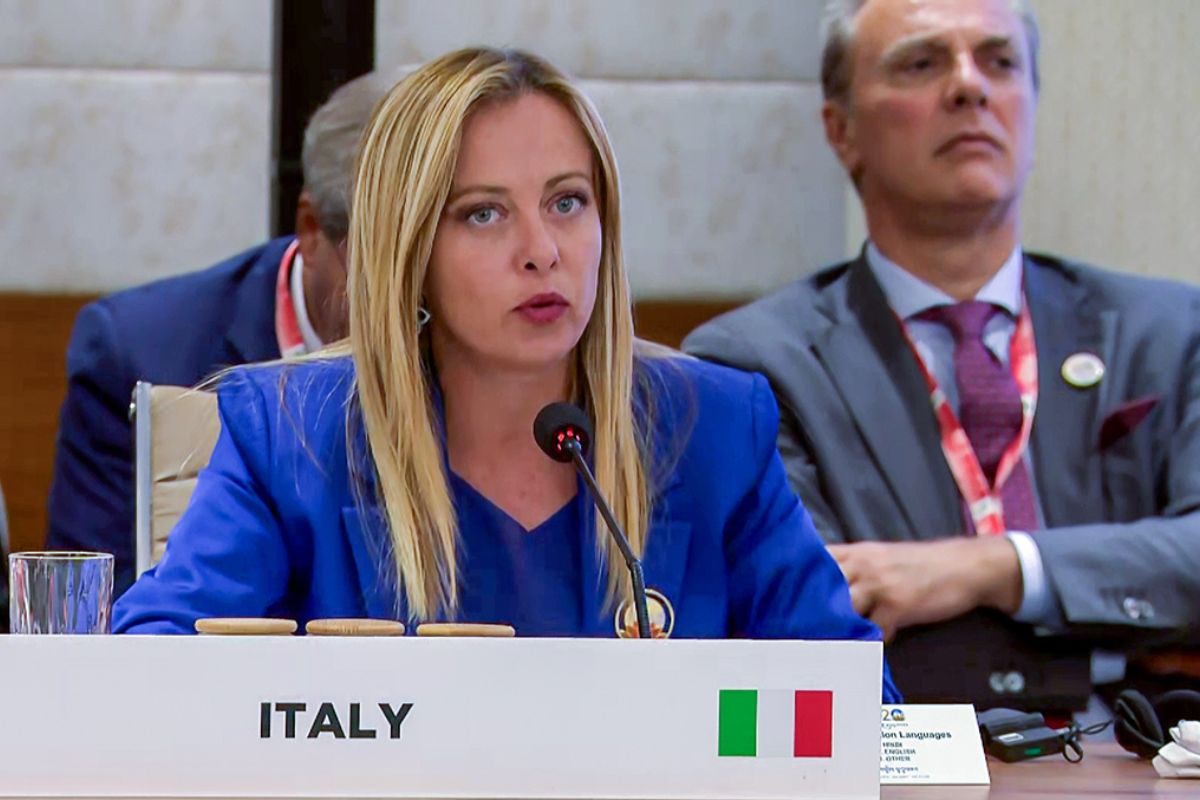Italian Prime Minister Giorgia Meloni’s far-right party has strengthened its hand with a strong showing in the European Parliament elections which ended two days ago. However, Italy’s main opposition party also gained ground.
Meloni’s Brothers of Italy gained 28.8 per cent of votes, earning 24 of Italy’s 76 seats in the legislative body. This represents a dramatic increase from the 6.4 per cent share of votes won by the party in the last European Parliament vote in 2019 and an increase from the 26 per cent it earned in the 2022 national election, Xinhua news agency reported.
However, like the Brothers of Italy, the country’s centre-left Democratic Party, the main opposition party, also won a larger share of the vote, with 24.1 per cent and 20 seats. This represents a stronger showing than the 22.7 per cent of votes the party won in 2019.
“The main takeaway is that the big parties grew their share, separating themselves from the other parties,” Vincenzo Emanuele, a political scientist and vice-director of the Italian Center for Electoral Studies at Rome’s LUISS University, told Xinhua on Monday.
Although the vote results are for Italy’s representatives in the European Parliament and do not directly impact the Italian Parliament or the makeup of Meloni’s government, they are considered a gauge of support rates for the country’s political factions.
Meloni said after the vote that the results strengthen Italy’s influence within the EU and internationally.
“We have the strongest government in the G7,” Meloni said, referring to the G7 nations.
Italy is at the helm of the G7 this year.
Meanwhile, the other European countries in the organisation, France and Germany, saw their ruling coalitions lose support in the European Parliament vote.
In Italy, the losers in this vote were the country’s second-tier parties.
Anti-migrant party The League won nine per cent of the vote, a large drop from 34.3 per cent in 2019. Five years ago, the party was the biggest winner; this time, it dropped to the fifth.
The anti-establishment Five-Star Movement, headed by former Prime Minister Giuseppe Conte, earned 10 per cent of the vote, a decline from 17.1 per cent in the last European Parliament elections.
According to Emanuele, the low voter turnout featured this year’s elections in Italy: just 49.7 per cent of those eligible to vote did. It is the first time that fewer than half of eligible voters have turned out in a European Parliament election. In 2019, the turnout was 54.5 per cent.
The results were front-page news across Italian media, with Le Repubblica calling the vote both “historic” and “predictable”.
Italian state broadcaster RAI put the results in an EU context, saying “Europe is moving to the right”.
With 76 of 720 seats, Italy will have the third-largest contingent in the European Parliament, behind Germany and France, both of which saw their tilt toward right-wing nationalist parties in the latest vote.












